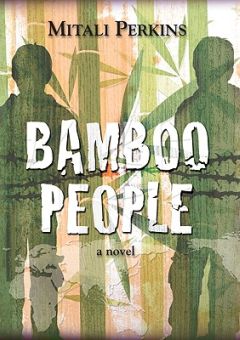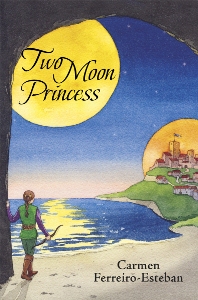This review contains affiliate links, which earn me a small commission when you click and purchase, at no extra cost to you. Thank you for supporting my small business and allowing me to continue providing you a reliable resource for clean book ratings.
The senselessness of war. The brutality of commanders and oppressive governments. The lives of the soldiers, willing or not, that are caught up in political games. The propaganda that confuses and misleads. The families that are torn apart. It could be any war; in fact, there are many books like this that exist about the Civil War, World War II and Vietnam. It’s almost too easy to dismiss those as history, as irrelevant. But Mitali Perkins brings the same themes to the current day, with the conflict in Burma. This is not history, people.
We follow the story of Chiko, the son of a political prisoner, and someone whose only aspirations in life are to be a teacher. He’s not cut out for being a soldier and does what he can to avoid being captured and drafted. Unfortunately, that doesn’t last; the government tricks him by advertising for teachers, and then pulls a bait-and-switch. The camp where he’s being trained to be a soldier is not a pretty or nice place; the commander in charge is one of the worst kinds of despots: an insecure bully. It’s only through the wits of a street boy, Tai, whom Chiko befriends that Chiko is even able to survive. It’s harsh and brutal to read about the inhumanities that men exact on boys; even as watered down as this is (it could have been much worse), it still makes one flinch. How can people treat others this way?
He does find uses for his talents, though: he becomes a scribe for one of the seconds in command and teaches Tai and some of the other soldiers to read. He even secures a spot with the army back in the city where his mother is. However, once the commander finds out, he threatens to send Tai off on a dangerous mission as punishment. Chiko, noble person that he is, offers to trade spots with Tai; he’ll go on the mission and Tai will go to the city. Your heart bleeds for Chiko; there’s a definite sense of foreboding, and you know that the mission won’t go well. It’s war, after all, and there are casualties.
Enter Tu Reh, a Karenni refugee who cannot forgive the Burmese army for the way they’ve oppressed his people. He finds Chiko wounded in the jungle, and — understandably — wants to leave him to die. Or at least perform a mercy killing. And yet, something in him is moved by the Burmese boy, and he carries him to a nearby healer’s hut, and eventually to the refugee camp, saving Chiko’s life. A friendship slowly develops, and perhaps even a little, perspectives are softened, and minds are changed.
Rated: Mild, for instances of disturbing violence.
Click here to purchase your copy of Bamboo People on Amazon.




